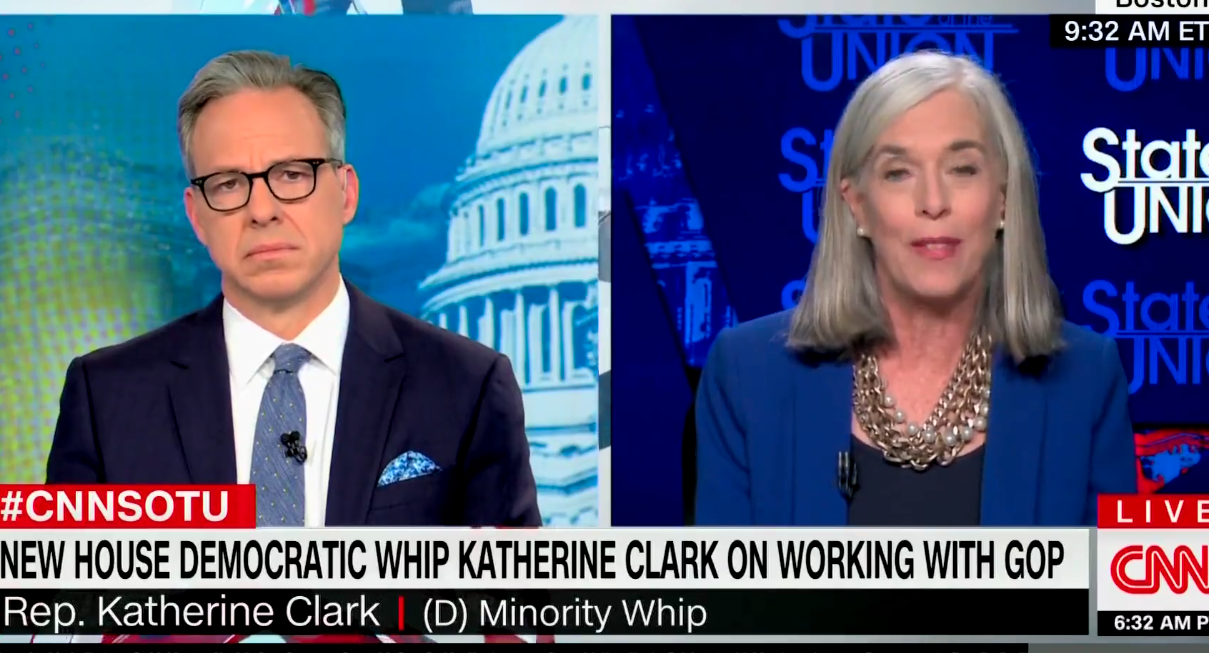
The Democrats’ threat against democracy
David Freddoso
Video Embed
Democrats have been dining out on the Jan. 6 Capitol riot for the last two years. But as time goes by and they reveal themselves as increasingly obsessive and power-hungry, they have to overreach further and further for their material. And their newest talking point has to be heard to be believed.
“I’ve not been shy about saying that McCarthy’s protracted fight over the speaker’s gavel … was a continuation of that [Jan. 6] insurrection,” said MSNBC’s left-wing commentator Jonathan Capehart, teeing up Rep. Madeleine Dean (D-PA) to give the answer he sought. “Am I wrong?”
FOR DEMOCRATS, EVERYTHING IS NOW AN INSURRECTION
“No,” replied Dean, “you’re not going too far.”
So now, the performance of a public function of the federal government’s legislative branch is somehow part of a rebellious conspiracy against that same government. This reminds me a bit of when Democrats tried to put former Texas Gov. Rick Perry in prison for threatening to veto a bill. And yes, they literally did that — this is how power-hungry their party really is. They have been working tirelessly for a decade to make it a crime to oppose their agenda.
Over on CNN, Katherine Clark (D-MA), the new House Democratic Whip, made the equally bizarre assertion over the weekend that by having a public dispute about leadership positions and legislative processes, Republicans had “endangered our country’s national security.”

Most well-adjusted people don’t think that way. Putting disagreements to a vote is a good way of settling things peacefully. It sure beats torching buildings and killing people, but not if you’re conservative. Thus, Democratic politicians’ words again evince their party’s slouch away from democracy.
Totalitarian language such as Capehart’s and Clark’s has proliferated among so-called liberals in recent years. It is frequently used for emotional manipulation — as in, “Tell this man that he’s a woman, or else it’s your fault when he kills himself.” It is used even more often to demonize people who commit the great sin of participating in the nation’s democratic processes without bowing to the nostrums and the agenda of the Democratic Party. But in this case, the complaints are especially absurd. The House is a deliberative body whose members work for the public. It is a place where disagreements and debates are expected to be aired and settled — in public. It’s not even guaranteed to be pretty. That’s what representative democracy is all about. It is precisely what the founders of this nation intended to foster. They did not intend for the speaker of the House to cut backroom deals and put legislation on the floor that no one was allowed to amend.
If Clark believes that a public debate over returning to regular order somehow endangers national security, perhaps she pines for the good old days. Two centuries ago, Democratic House speakers routinely prevented anti-slavery members of Congress from speaking about the issue. Rather than permit the chaos of open debate and disagreement, they simply refused to recognize abolitionist House members from the chair. It certainly helped keep the peace. But was it good for the country?
I certainly hope that Clark and Dean are as insincere with their expressed outrage as the average Democratic media sock puppet. But their propaganda line, that the U.S. House as an institution is out of control without Democrats in charge, is simply untrue.
Indeed, the concessions that House Speaker Kevin McCarthy (R-CA) made in order to win his new position are not even that unusual. Before House Speaker Nancy Pelosi consolidated her own power and made it harder for members of the House to have democratic debates or hold her accountable, House rules looked a lot like the rules package for the Congress just beginning. As recently as 2018, the House rules for the motion to vacate the chair — the most controversial change in the entire process — were the same as the ones McCarthy just agreed to.
CLICK HERE TO READ MORE FROM THE WASHINGTON EXAMINER
Almost all of the rule changes are small-d democratic — as in, they promote public legislating instead of bills being written and passed through closed-door agreements. If Democratic House leaders believe that public disagreements and debates are a danger to national security or a continuation of “insurrection,” then they are clearly in the wrong line of work. They should resign from Congress immediately.
And those claiming that legislative processes are somehow on par with insurrection — what they are really doing is crafting an excuse to criminalize and eventually crackdown on political views they don’t like. Such people are the biggest threat to democracy today — don’t ignore them.
